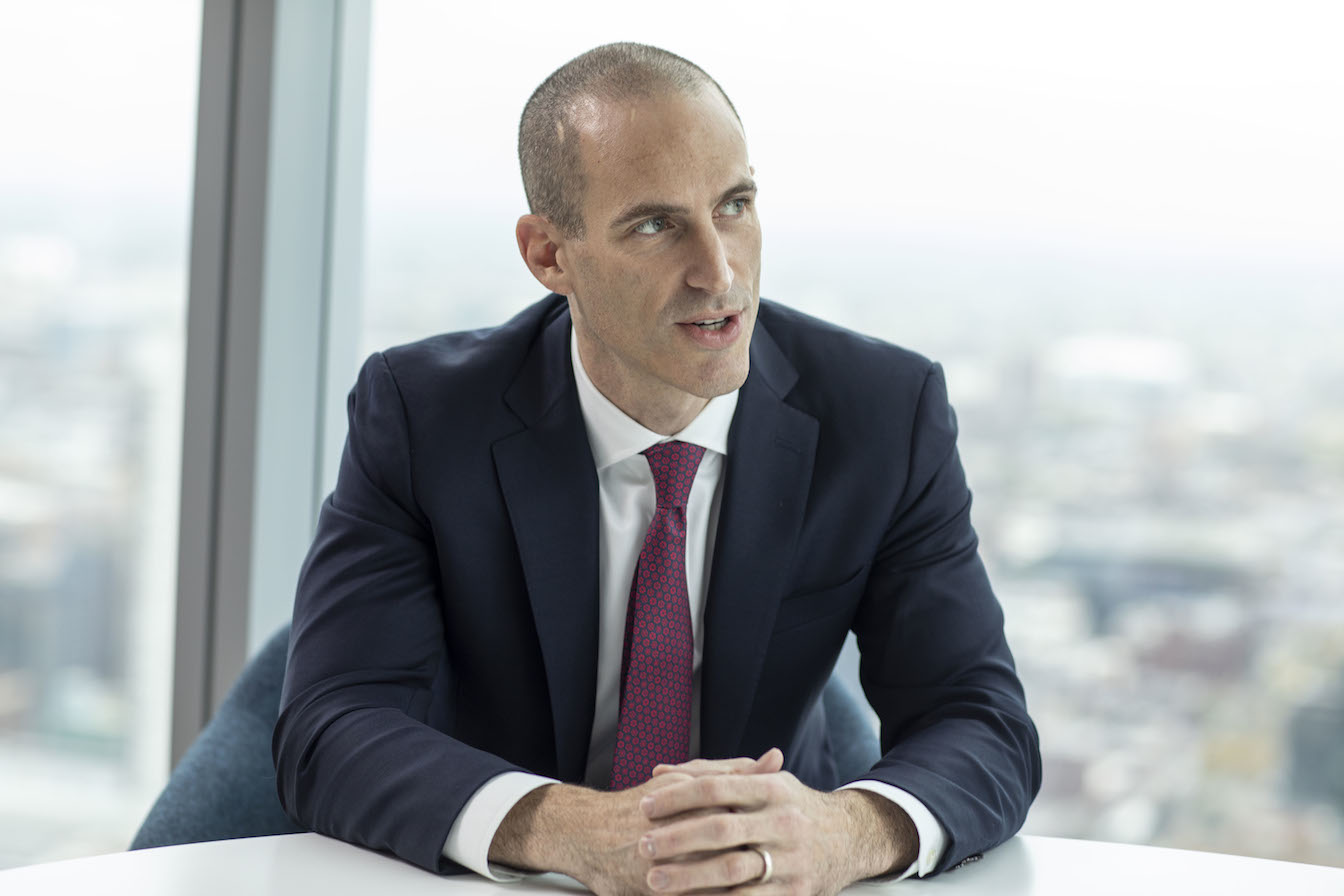In just four years, the founders of Keller Lenkner have revolutionized mass practice, pioneering a successful mass-arbitration strategy and adding new dimensions to traditional mass-tort tactics. The results have been astounding. The firm has grown to a 100-strong team of professionals and has secured recoveries for over 500,000 individuals.
Building off that success, the firm is doubling down on its commitment to mass practice and developing innovative techniques for mass arbitrations that will be applied to mass torts, as well. As co-founder and CEO Adam Gerchen put it, “We fundamentally believe that the scale of mass actions will continue to grow, so our core focus—which has remained steadfast—is and always will be on innovation, excellence, and significant investment in ensuring the highest-levels of execution for our clients.”

In recognition of its new emphasis, the firm has changed its name to Keller Postman. The new name recognizes Ashley Keller, who is a co-founder of the firm and built the powerhouse mass-tort practice, and Warren Postman, who spearheaded the firm’s revolutionary mass-arbitration practice. “It’s a natural progression that mirrors some of the changes occurring in the broader legal ecosystem,” says Gerchen. “We have always prided ourselves on evolving as individuals and in our various businesses, so it was a straightforward decision for us in name, role, and function.”
Postman has also been named Managing Partner. “Warren is a natural fit for the managing partner role: organized, patient, creative, decisive, and responsive,” says Keller. “His steady leadership ensures that we have an even greater capacity for expansion and rapid growth in the years ahead.”
Keller’s thriving mass-tort practice has taken off in record time. The firm leads several of the largest mass-tort cases in the country, including those against the makers of Similac and Enfamil cow-milk-based infant formulas, which have allegedly caused necrotizing enterocolitis in infants, leading to life-long injury or death; 3M, which sold defective earplugs to the U.S. military that are alleged to have caused hearing loss and related issues in over a quarter million servicemembers; and the makers of Zantac heartburn medication, which was pulled from the market after it was found to contain cancer-causing ingredients.
Aside from being deeply invested in these cases, the firm also holds coveted court-appointed leadership positions in the litigation. Keller, for example, is serving as the Chair of the Law-and-Briefing committee in the Zantac multi-district litigation. And in the 3M litigation, Keller and his team have similarly taken a leadership role in briefing and appeals.

Keller ascribes the firm’s success not only to its remarkable collection of talent, but also to its reputation among mass-tort leaders across the country and the partnerships that it has developed as a result. “We have deepened our referral relationships, which allows us to better serve an even larger group of clients,” says Keller. “This ensures that we represent one of the largest cohorts of plaintiffs in every tort we are active in, giving us a stronger bargaining position for those we represent. And that leads to what I’m most proud of—the unparalleled results we have achieved for hundreds of thousands of clients,” says Keller.
On the mass-arbitration side, Postman’s vision of taking on once-untouchable mega-companies—such as Amazon—has for the first time given hundreds of thousands of ordinary Americans a realistic avenue to vindicate their rights. For decades, corporations have closed the courthouse doors to individual claimants over disputes about wages or deceptive practices by requiring them to arbitrate such claims and then imposing large fees on them to access the arbitrators.
Postman upended what had effectively become a form of corporate immunity by giving individuals access to arbitrations. He represents individual claimants and helps put their cases before arbitrators, en masse. That forces corporate defendants to pay their share of arbitration fees and finally face the prospect of legal liability for their illegal conduct, leaving those defendants—as reported by the New York Times— “scared to death.” After failed attempts to evade their own arbitration clauses, defendants have begun discarding them altogether simply to avoid facing a mass-arbitration campaign. Amazon, for example, dropped its arbitration requirement for all of its customers after the firm filed more than 75,000 arbitration demands against it for illegally recording customers with its Alexa devices.

“Countless plaintiffs each year give up on valid claims they have against large corporations because pursuing those claims is too expensive, burdensome, or not worth the hassle. A working mother with a sick child may not be able to gather all the relevant medical records from numerous healthcare providers. A busy delivery driver might not have time to document all his expenses. Or a consumer who was overbilled might give up after being unable to track down a billing statement,” says Postman. “As a firm that represents individual plaintiffs, a key part of our job is to make it easier for clients to complete the many administrative tasks that are necessary to perfect their claim. Those administrative tasks may not be as glamourous as developing a novel legal argument, but they are every bit as crucial to delivering for our clients.”
Iterating on its success with mass arbitrations, Keller Postman now partners with firms who have filed class actions in court and face the risk of a defendant’s seeking to compel arbitration. “When we appear as co-counsel in class action cases, our track record in mass arbitrations changes the calculus for defendants,” explains Postman. “A motion to compel arbitration no longer represents a get-out-of-jail-free card, so we are seeing some defendants choose instead to resolve claims on a classwide basis.”
The firm is committed to “continuing to scale our client services capabilities, which helps level the playing field for plaintiffs squaring off against big corporations and means more of our clients will succeed in their claims,” says Postman. The firm will also be expanding its data, IT, and litigation-support functions, which will increase the impact of its legal team.
Gerchen agrees, noting how the synergies between the firm’s innovations in mass arbitrations and its innovations in mass torts promise to accelerate the firm’s success in both. “The core foundation of what’s made our mass-arbitration practice successful, aside from Warren as its architect, is the immense investment we have made in our platform across sourcing and origination, IT infrastructure, and people, both on the lawyer and operations sides,” says Gerchen. “We in turn have used that scaled, institutionalized approach to intake and processing—and our intellectual capital—to succeed at the highest levels in mass torts.”
Postman joined the firm at its founding from the U.S. Chamber of Commerce, where he was Vice President and Chief Counsel for Appellate Litigation. A former clerk to U.S. Supreme Court Justice David Souter, he also spent four years at Jones Day in Washington, D.C. As the head of Keller Postman’s Washington office, he has built a talented, experienced team, that quickly achieved significant victories for the firm’s clients.
“D.C. has been a great market for finding highly accomplished lawyers who are looking for the sort of creative, entrepreneurial practice Keller Postman offers,” says Postman, who firm associates commend for his approach to recruiting.
“I have never taken a hard-sell approach to recruiting and prefer just to have an open discussion about fit,” says Postman. “Our firm is not for everyone—we are an intense group of people who operate with a sense of urgency and are always looking for a new challenge. But for people who thrive in that environment, our firm offers an opportunity to be part of an elite team, exciting and rewarding work, and unparalleled opportunities for professional growth. When we find someone who’s the right fit, I think the firm tends to sell itself.”
Postman expects the firm’s growth to continue in D.C. It is also seeking top talent for its office in Texas, headed by Zina Bash, former Senior Counsel to the Attorney General of Texas and a former clerk on the D.C. Circuit and the U.S. Supreme Court.
The firm will also be opening an office in Miami, to support its growing docket there.
Commenting on the firm’s trajectory, Postman notes: “Our firm has grown rapidly based on the quality of our team, but our growth has been fairly organic. That has required our lawyers to be jacks-of-all-trades and has led to a certain amount of reinventing the wheel. Our focus now is on moving to an organizational structure and culture that will allow us to scale to the next level. We will also be empowering the many rising stars at the firm—both lawyers and non-lawyers—to step up and take on greater responsibility in the organization,” says Postman.
While excited about the firm’s next phase, its leaders understand the importance of the sturdy foundation that has enabled it to achieve such rapid success. “The ingredients for continued growth and success remain the same: work with an unmatched team of dedicated professionals who will deliver great outcomes to our clients,” says Keller.


